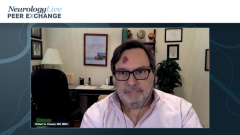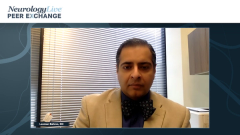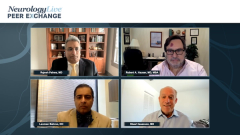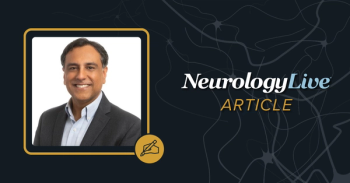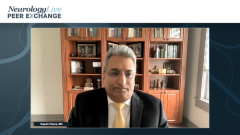
Key Takeaways for Treating OFF Episodes in PD
Drs Laxman Bahroo, Rajesh Pahwa, and Robert A. Hauser share advice for neurologists treating OFF episodes in Parkinson Disease.
Episodes in this series

Stuart Isaacson, MD: That was a fascinating discussion with everyone. Take home messages perhaps. Laxman, do you have a take home message for a neurologist treating OFF episodes?
Robert A. Hauser, MD, MBA: Probably 2. One, query your patients about OFFs. If they don't know what you mean, educate your patients and their caregivers about what OFFs occurs. Because when they emerge, you want to have some vocabulary that's in common. Probably the second is we have numerous therapies coming out, we have numerous therapies that have come out. And if your patients are experiencing OFFs, it's worth trying these on-demand class of therapies, future class when they come out with the long acting levodopas or the subcutaneous infusions. Parkinson's has changed so much even in the last 5, 6 years. I suspect in the next 5, 7 years it will be even differently treated than how we treat it now.
Stuart Isaacson, MD: Raj, last take home message.
Rajesh Pahwa, MD: One, educating both the patient and the neurologist about what OFF is and how to discuss OFF. And the second thing is every patient is different, every patient's OFF is different, the severity of OFF is different. You asked earlier a question, is our goal to eliminate OFF completely? Yes, that is the goal. Whether we can reach that or not is a different thing, but what can we do to completely eliminate OFF in our patients, not at the risk of having more dyskinesias but giving them more good on time during the day.
Stuart Isaacson, MD: Bob?
Robert A. Hauser, MD, MBA: Yes as a field, we continue to make good progress in longer duration therapies and continuous delivery of efficacious medications, so that continues onward. And I'm also struck by the fact that the answers to a lot of your questions were talk to the patients and understand how they're doing through the day so you can make appropriate adjustments.
Stuart Isaacson, MD: Thanks to all of you for this very informative discussion. And thank you for watching this neurology live peer exchange. If you enjoyed the content, please subscribe for our e-news letters to receive upcoming peer exchanges and other great content right in your inbox. Thank you.
Transcript Edited for Clarity
Newsletter
Keep your finger on the pulse of neurology—subscribe to NeurologyLive for expert interviews, new data, and breakthrough treatment updates.

